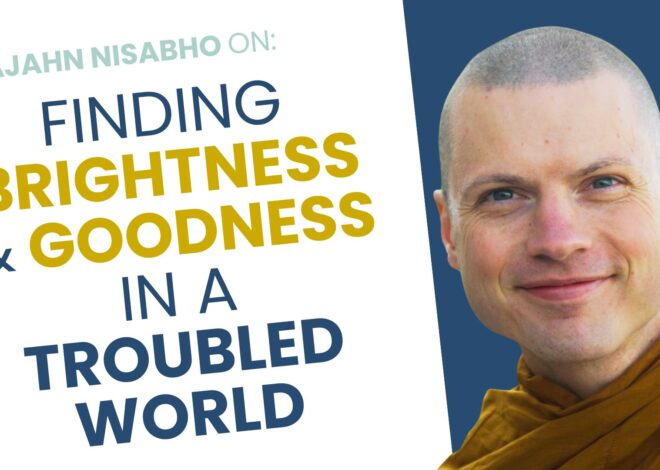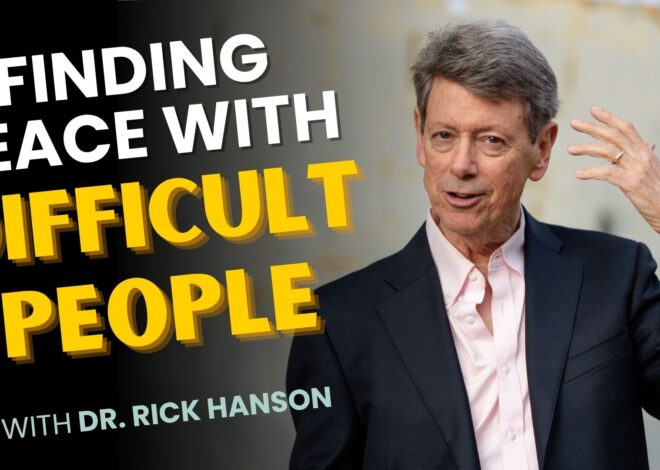
Meditate – Rick Hanson, PhD
[ad_1]
Can you come home to yourself?
The Practice:
Meditate.
Why?
Meditation is to the mind what aerobic exercise is to the body. Like exercise, there are many good ways to do it and you can find the one that suits you best.
Studies have shown that regular meditation promotes mindfulness (sustained observing awareness), whose benefits include decreased stress-related cortisol, insomnia, symptoms of autoimmune illnesses, PMS, asthma, falling back into depression, general emotional distress, anxiety, and panic, and increased immune system factors, control of blood sugar in type 2 diabetes, detachment from reactions, self-understanding, and general well-being.
In your brain, regular meditation increases gray matter (neuronal cell bodies and synapses) in the:
- Insula – Handles interoception (sense of your own body); self-awareness in general; empathy for the emotions of others
- Hippocampus – Key role in personal recollections, visual-spatial memory, establishing the context of events and calming down both the amygdala (the alarm bell of the brain) and production of stress hormones like cortisol
- The prefrontal cortex (PFC) – Supports the executive functions, self-control, and guiding attention
Regular meditation also:
- Increases activation in left PFC, which lifts mood
- Increases the power and reach of very fast, gamma range brainwaves, which promotes learning
- Preserves the length of telomeres, the caps at the ends of DNA molecules; longer telomeres are associated with fewer age-related diseases (This was found in a three-month retreat, and may not apply to meditation in general.)
- Reduces cortical thinning due to aging in the insula and PFC
Meditation is the quintessential training of attention. Since attention is like a vacuum cleaner – sucking its contents into your brain through what’s called “experience-dependent neuroplasticity” – getting better control of your attention is the foundation of changing your brain, and thus your life, for the better.
The research summarized above just scratches the surface of the benefits of meditation. It is you saying to the world (and yourself): I’m going to step off the hamster wheel now. This time is for me. It is a way to center on being rather than doing (what a relief!). And a way to see the mind streaming along, transient and insubstantial, an unreliable basis for lasting happiness, not worth chasing after or struggling with.
The minutes I spend meditating are usually the best ones of my day. They feel like coming home. It’s good to be home.
Get Tips Like This Delivered Right to Your Inbox
You can unsubscribe at any time and your email address will never be shared or sold.
How?
The best meditation of all is . . . the one you will do. So find what you like and will stick with. There are tons of books, talks, even videos about meditating, plus great teachers all over the place. Here I’ll offer a summary.
Relax. Rest. Intend to meditate. Come into a sense of presence with yourself. Know whether you are meditating in relationship to something transcendental (such as in prayer) or not. (I’ll describe a “secular” meditation here.)
Find something to anchor attention, such as the sensations of breathing, a word or phrase (e.g., “peace”), or an image. Use an anchor that is stimulating enough to keep yourself present; feel free to do walking meditation or use an audio program to guide you. Meditating with others can also help you stay focused.
Start by giving attention fully to the anchor, letting go of everything else. Center in it, becoming absorbed in it, even for just a few breaths or few minutes.
Then, with an ongoing awareness of your anchor, let your attention widen to include your body . . . thoughts . . . feelings . . . wants . . . and overall mental atmosphere. You’re not trying to make your mind blank. Let things come and go, just don’t jump on board of them. Without stress or strain, gently open to relaxing and quieting, and to an increasingly stable presence as experiencing, being a body breathing in peace.
Meditate for as long as you like. Even one minute is good – and ten, twenty, or even forty-five minutes could be even better. I suggest you join me in being committed to meditating every day for at least one minute.
Toward the end of meditation, let the benefits sink into you.
If you tend toward dissociation or getting flooded with painful feelings when you relax into yourself, then you may need to build up more inner resources before meditating. Also, try to not be self-critical; this is not a performance test! Meditation is a skill and like any other, you’ll get better at it over time, and its benefits for you will grow.
Most of all, find the enjoyment in meditation. Follow that enjoyment home.
Know Someone Who Would Like to Start Meditating?
Use the buttons below to share this article via social media or email.
[ad_2]
Source_link
![]()


